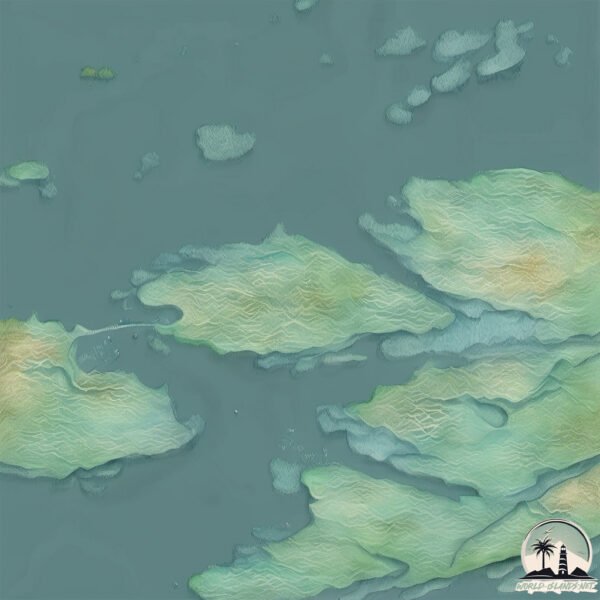Stokkoya

Welcome to Stokkoya, a Temperate island in the Norwegian Sea, part of the majestic Arctic Ocean. This guide offers a comprehensive overview of what makes Stokkoya unique – from its geography and climate to its population, infrastructure, and beyond. Dive into the details:
- Geography and Size: Explore the island’s size and location.
- Climate and Weather: Weather patterns and temperature.
- Topography and Nature: Uncover the natural wonders of the island.
- Infrastructure and Travelling: Insights on reaching, staying, and making the most of your visit.
- News and Headlines: Latest News.
Geography and size of Stokkoya
Size: 17.1 km²
Coastline: 23.2 km
Ocean: Arctic Ocean
Sea: Norwegian Sea
Continent: Europe
Stokkoya is a Medium Island spanning 17 km² with a coastline of 23 km.
Archipel: –
Tectonic Plate: Eurasia – One of the world’s largest tectonic plates, the Eurasian Plate covers a significant portion of Europe and Asia. It’s characterized by diverse geological features, including the Ural Mountains, the European Plain, and the Himalayas formed from its collision with the Indian Plate.
The geographic heart of the island is pinpointed at these coordinates:
Latitude: 64.05882835 / Longitude: 9.9840046
Climate and weather of Stokkoya
Climate Zone: Temperate
Climate Details: Temperate Oceanic Climate
Temperature: Warm Summer
Climate Characteristics: Known for its moderate year-round temperatures with ample rainfall and no dry season. Warm summers are characteristic.
Topography and nature of Stokkoya
Timezone: UTC+01:00
Timezone places: Europe/Paris
Max. Elevation: 234 m
Mean Elevation: 118 m
Vegetation: Herbaceous Cover
Tree Coverage: 41%
The mean elevation is 118 m. The highest elevation on the island reaches approximately 234 meters above sea level. The island is characterized by Hills: Gently sloping landforms with rounded tops, having a maximum elevation between 200 and 500 meters. Hills contribute to a varied landscape on islands.
Dominating Vegetation: Herbaceous Cover
Comprising mainly of grasses, herbs, and ferns, these areas are common in prairies, meadows, and savannas, and can vary widely in species composition. Stokkoya has a tree cover of 41 %.
Vegetation: 8 vegetation zones – Very Highly Diverse Island
Islands in this range are ecological powerhouses, showcasing a wide array of vegetation zones. Each zone, from lush rainforests to arid scrublands, coastal mangroves to mountainous regions, contributes to a complex and interdependent ecosystem. These islands are often hotspots of biodiversity, supporting numerous species and intricate ecological processes.
Infrastructure and Travelling to Stokkoya
Does the island have a public airport? no.
There is no public and scheduled airport on Stokkoya. The nearest airport is Ørland Airport, located 54 km away.
Does the island have a major port? no.
There are no major ports on Stokkoya. The closest major port is TRONDHEIM, approximately 79 km away.
The mean population of Stokkoya is 3 per km². Stokkoya is Gently Populated. The island belongs to Norway.
Continuing your journey, Linesoya is the next notable island, situated merely km away.
Stokkøya island | Same Place New Time



Norway is classified as Developed region: nonG7: Developed economies outside of the Group of Seven, characterized by high income and advanced economic structures. The level of income is High income: OECD.
News – Latest Updates and Headlines from Stokkoya
Stay informed with the most recent news and important headlines from Stokkoya. Here’s a roundup of the latest developments.
Please note: The data used here has been primarily extracted from satellite readings. Deviations from exact values may occur, particularly regarding the height of elevations and population density. Land area and coastline measurements refer to average values at mean high tide.
